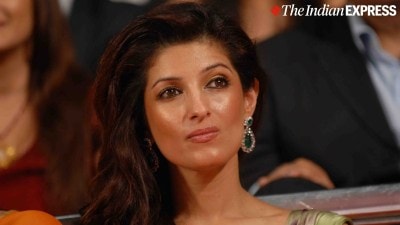Omar needs encouragement
It was in early 1998 that I first met Omar Abdullah, ahead of his first sit down television interview as a politician. He drove in all alone...

It was in early 1998 that I first met Omar Abdullah, ahead of his first sit down television interview as a politician. He drove in all alone. It took one back to the early days of Farooq Abdullah, driving a motorbike unescorted in Srinagar. The similarity between the two was overwhelming but to a comment that described him as just another dynasty story in subcontinental politics, he loudly proclaimed, 8220;Do not be under any wrong impression. I have have a mind of my own and I intend to act on it.8221;
Five years down the line, the question remains: Is Omar Abdullah any different? He did make some impression in New Delhi here during his brief stints as a junior minister. But what about in Srinagar, the much bigger challenge? There was nothing much to write home about his performance here until his big decision some days ago to snap ties with NDA 8212; an alliance that his father until recently had proudly touted as a major success story. The decision has raised many an eyebrow. Is it a case of an independent political mind at work or simply another instance of brash politics?
What this decision does convey loud and clear is that Omar Abdullah is the real boss of the National Conference NC. A comparison between him and his father, Farooq Abdullah, is inevitable, as was the case between Farooq Abdullah and the late Sheikh Abdullah. The two are actually quite different. But let us not get lost in the personality clash between father and son. The import of the latest NC decision goes far beyond this and has serious and wide-ranging repercussions on Kashmir8217;s politics.
Omar Abdullah8217;s decision is probably a last ditch effort by the NC to resurrect itself in the Valley. To survive as a political force to reckon with, the NC has to truly reinvent itself. The snapping of ties with the NDA is the first step in this direction. Omar Abdullah has probably realised that he inherited a party that had lost its character. The reading seems to be that being an ally of the ruling combine in New Delhi has contributed hugely to the gap between the NC and its mass base in the Valley.
The good old days when the NC, on its own, represented the might of the local political authority are clearly over. The political distance the party had maintained from New Delhi earlier had turned it into an effective buffer between Kashmir and all the external forces keen to destabilise the Valley. First, the Rajiv-Farooq accord and, later, the NDA-NC tie-up, slowly took the substance out of the local political sentiment that the NC had represented so well. New Delhi, too, has obviously got precious little in the bargain. In fact, all it got was a nervous, ambivalent local partner and a major political void in the Valley that was fully exploited by both internal and external forces inimical to India.
For India8217;s interests to remain protected, it is critical that New Delhi nourishes a variety of truly local and at times regional political forces in the strife-torn Valley. Rather than crucify him for his departure from the NDA, Omar Abdullah should be left alone to actually focus on rebuilding the broken party. On his part, Omar Abdullah would do well to remain focused on building public opinion in his state, so that his party can emerge as a viable alternative to the Hurriyat Conference and other militant formations that have mushroomed in the Valley over the last decade.
It is a lifetime opportunity for Omar Abdullah to reconnect with the hearts of anguished Kashmiris. He must be cautious, though. Kashmir has a well-established reputation for being the graveyard of political careers. For NC stalwarts, it is time to step aside and allow a new leadership to emerge and take charge. As for Mufti Mohamed Sayeed, he and his team must be accommodative and contribute to strengthening the unfolding political process in the Valley. Both Omar Abdullah and the present chief minister are potential allies in this historic project.
As Omar Abdullah pads up for a truly difficult but challenging innings, Mufti Mohamed Sayeed needs to encourage him and the NC to be a pro-active, people-driven opposition. That is probably the only way the two can work together to fight all the influences hell bent on keeping Kashmir on the boil. Let more Omar Abdullahs rise in the Valley. Let more local politicians see the light of day. That would be good for both J038;K and India.
The writer is a former executive editor with Zee News and a newspaper columnist
- 01
- 02
- 03
- 04
- 05































